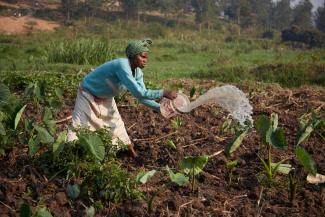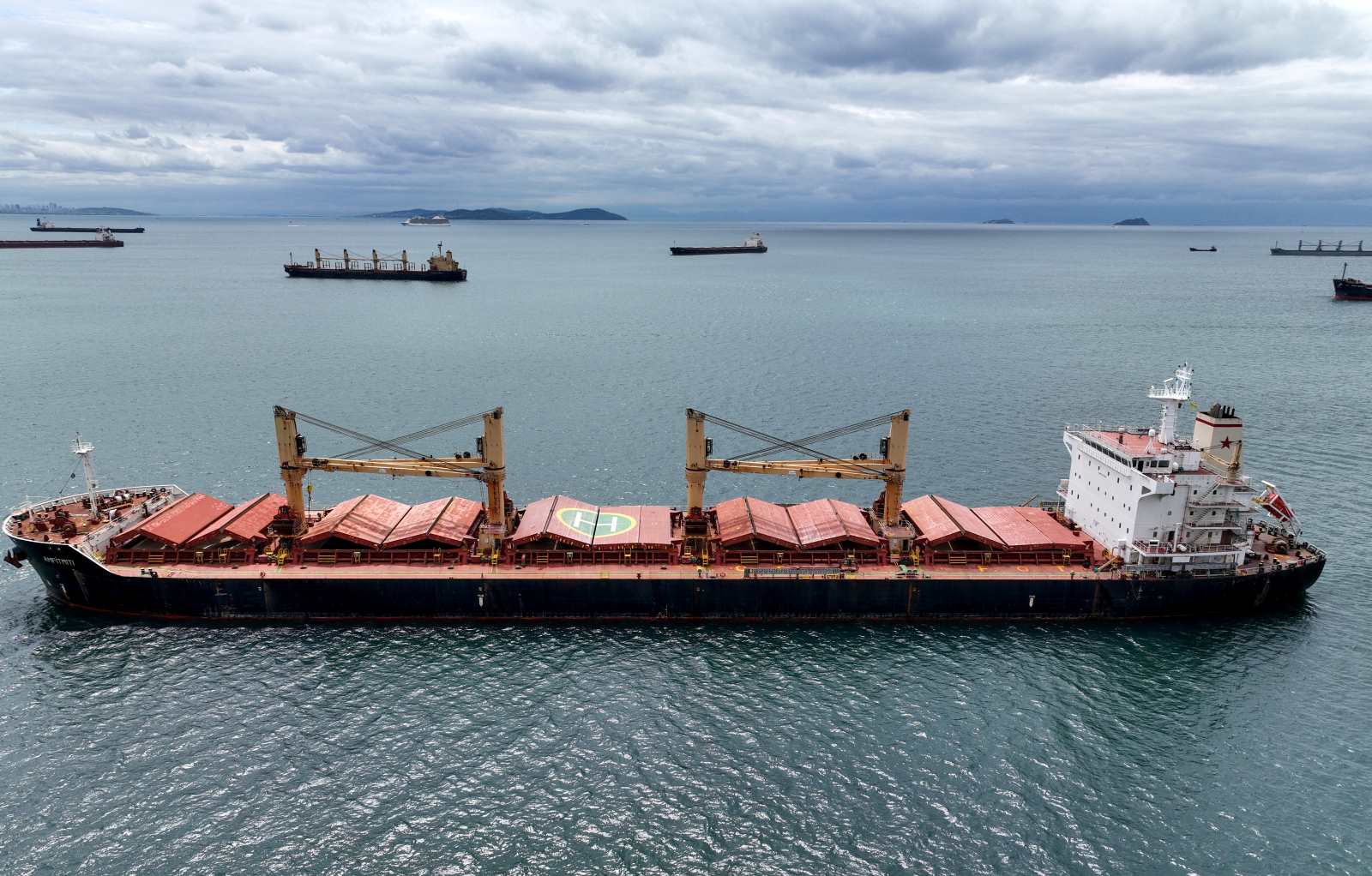Funding
Investing in rural communities

Small-scale farmers put one third of the world’s food on our tables. However, their communities often remain overlooked and chronically underfunded, especially in the rural areas of low- and lower middle-income countries (LICs and LMICs) where poverty and hunger are most entrenched. These areas have been side-lined for decades and are home to 80 % of the world’s poorest. Making just six cents for every dollar worth of food they produce, many see no other option but to migrate in pursuit of better opportunities.
Felipe Nazar, a farmer from the Philippines, puts it straight in an interview with The New Humanitarian: “We don’t earn anything during harvests. We just survive. We’re practically giving away our crops.” To make matters worse, these communities are also the most vulnerable to climate change.
Investing in rural communities can alleviate poverty and fight hunger effectively. However, international assistance still falls short of addressing the increasing demands. According to OECD data, only $ 9.4 billion was allocated for agriculture, forestry and fishing in 2021, representing only four percent of the global official development assistance (ODA), the flow of financial resources from developed to developing countries to finance their socioeconomic development. The lack of adequate funding hampers the transformative potential of rural communities to end hunger and poverty by 2030, as demanded by the UN’s 2nd Sustainable Development Goal (SDG2). But there is hope.
How IFAD works
The International Fund for Agricultural Development (IFAD), a UN specialised agency and international financial institution, works to eliminate poverty and hunger in rural areas of developing countries by investing in rural people. IFAD provides low-interest and highly concessional loans and grants through effective financial strategies. The UN Fund has 177 member states and was established in the 1970s in response to an energy and food crisis akin to what we are witnessing today. Since then, IFAD has been channelling investments to rural communities to boost food security, nutrition and incomes. Currently, IFAD is undergoing its triennial consultation to replenish the fund and agree on priorities for the future.
IFAD aims to assemble and catalyse finance going to rural areas, including cooperating with the private sector for this purpose. Measures include pooling resources, derisking operations and providing expert support to address intertwined topics like food security, migration, climate adaptation, private sector engagement and gender equality. Investing in long-term rural development through organisations like IFAD reduces emergency costs and promotes sustainable growth. Every dollar spent on resilience can save up to $ 10 in emergency aid. According to its own data, IFAD transforms every unit of investment into six-fold returns.
IFAD partners with governments for customised solutions. In Malawi, for example, a project improved market access for small-scale farmers and brought about multiple value-chains benefits through sustainable agricultural practices, intensified production and natural resource management. IFAD also strengthened local institutions and participated in policy dialogues to promote market-led agricultural growth and consistent policy implementation.
Beyond funding, IFAD ensures access to knowledge and decision-making processes, notably for women, youth and persons with disabilities. For example, the UN Fund features the so-called household methodologies (HHMs) approach which aims to support family members in working together to achieve a fairer workload. This targets patterns of gender inequality, thereby increasing agricultural productivity, improving nutrition and fostering overall social development.
IFAD also provides cushion to imminent crises. For example, it responded to the Covid-19 pandemic through the Rural Poor Stimulus Facility, a multi-donor initiative to ensure rural small-scale farmers had timely access to inputs, information, markets and finance. Moreover, IFAD tackled the ripple effects of the war in Ukraine with its Crisis Response Initiative which supported rural communities’ resilience and capacity to mitigate the impact of shocks. This includes access to seeds, fuel and fertiliser as well as investing in small-scale infrastructure to improve productive capacity and reduce post-harvest losses.
IFAD is not just a fund; it is a strategic partner for sustainable development. One of IFAD’s main concerns is finding the right balance between immediate aid and long-term investment. It is high time we invest to combat the root causes of hunger and poverty, rather than simply reacting to recurrent crises.
Agricultural solutions and private-sector engagement
One example of IFAD’s approach is the Rural Adelante (RA) initiative in El Salvador: it developed rural areas and agriculture, providing opportunities for women and youth – and alternatives to migration – while adapting to new climatic patterns. For instance, it doubled production and allowed year-round cultivation by introducing hydroponics, where plants are grown without soil and nourished with a nutrient-rich solution. As one female farmer participating in RA puts it: “With hydroponics, we have a great advantage; we better control pests, plant quality seeds and use qualified varieties.”
The initiative encouraged young rural populations’ participation in value chains through financial support while recognising the unique challenges faced by women, who make up 40 % of its active participants. The project also targeted traditionally excluded and vulnerable groups like indigenous peoples, children and the elderly. Beyond the main activities, the project conducted applied policy-research.
IFAD strongly advocates for financial inclusion using digital technologies, value-chain financing, credit cooperatives, and public-private partnerships (PPPs). In rural development, PPPs link small scale farmers, as private operators, to the wider market. Climate change is unpredictable to a certain degree, which makes it necessary for these farmers to have access to resources and technology. IFAD’s strategy goes beyond derisking and regulatory reforms and emphasises private sector engagement, aligning private investments with the SDGs, the Paris Agreement and a vision for a sustainable global food system.
IFAD is pioneering a financial framework promoting collaboration and partnerships, leading food-systems financing with the World Bank and the UN Food Systems Coordination Hub. Events in 2023, like the SDG Summit and COP28, amplify these efforts. Food-system transformation pillars – coordination, finance, governance and innovation – must be prioritised as elements of a critical pathway to achieve the SDGs. IFAD’s current replenishment offers a blueprint for addressing these challenges and boosting financial commitment to rural food system transformation.
PPP in Mali
One of these PPPs is the partnership with Mali Biocarburant SA (MBSA), which manufactures eco-friendly biodiesel using the energy plant jatropha. MBSA supports farmers in leveraging carbon credits. Farmers cultivate jatropha, and their cooperatives sell the nuts to MBSA for oil extraction. IFAD supports these partnerships via joint ventures and contract farming. Smallholder farmers partake in pricing and other decisions and, as shareholders, gain from share appreciation and dividends.
Additionally, intercropping with jatropha enhances food crop yields, providing a financial safety net. The broader community also benefits, notably from jatropha’s role in land rehabilitation. The extraction’s residue enriches soil and is used in soap production, empowering women through soap factory ownership.
Raising additional funds
In order to respond to increased needs due to the war in Ukraine, the aftermaths of slow Covid-19 recovery and the energy crisis, IFAD is making a concerted effort to raise more funds to serve rural people. Scaled up support of donor countries is vital, as is finding new ways to bring in new financing. In addition to its current replenishment process with member states, IFAD is raising an additional $ 500 million through private placements. The money will be used for proactive measures to tackle climate displacement, social instability and gender inequality.
Germany is one of the countries boosting IFAD’s engagement with the private sector and endorsing sustainable financial strategies. KfW, a pioneer lender for IFAD since 2014, recently extended a € 400 million promotional loan for IFAD’s $ 3.5 billion programme in 2022–2024.
Rural development transcends the boundaries of rural areas – its implications ripple through global issues like migration, women’s empowerment, climate change and food security. Therefore, supporting IFAD is about addressing immediate challenges for humanity, as well as investing in medium to long-term solutions. By doing so, global commitment to the most vulnerable people in the world can be reaffirmed.
Germany’s support has been instrumental in driving positive change in rural communities worldwide. We hope it will continue standing with IFAD, championing the cause of those who feed the world and ensuring a resilient future for the generations to come.
Satu Santala is Associate Vice-President of the External Relations and Governance Department at IFAD.
ifadnewsroom@ifad.org













